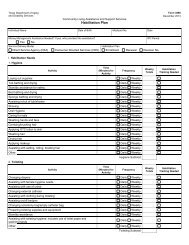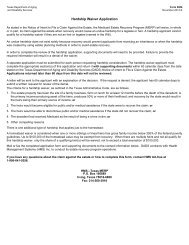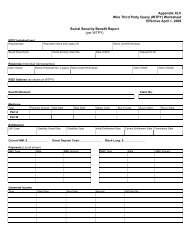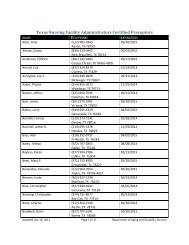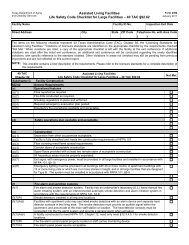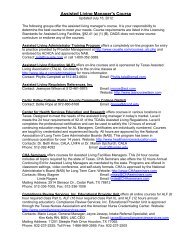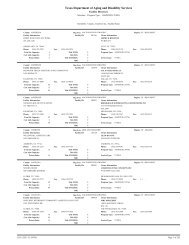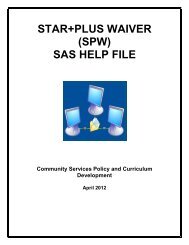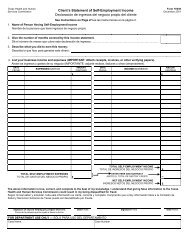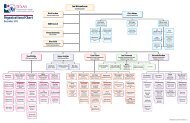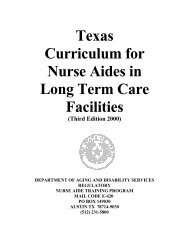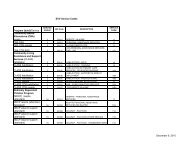Aging and Disability Services Council Sharon Swift Butterworth ...
Aging and Disability Services Council Sharon Swift Butterworth ...
Aging and Disability Services Council Sharon Swift Butterworth ...
Create successful ePaper yourself
Turn your PDF publications into a flip-book with our unique Google optimized e-Paper software.
<strong>and</strong><br />
(E) transportation between the individual's place of residence <strong>and</strong> prevocational services<br />
work site when other forms of transportation are unavailable or inaccessible.<br />
(53) Program provider--An entity that delivers CLASS Program case management or direct<br />
services under a provider agreement.<br />
(54) Provider agreement--A written agreement between DADS <strong>and</strong> a program provider that<br />
obligates the program provider to provide CLASS Program services.<br />
(55) Recreational therapy--Recreational or leisure activities that assist an individual to restore,<br />
remediate or habilitate the individual's level of functioning <strong>and</strong> independence in life activities,<br />
promote health <strong>and</strong> wellness, <strong>and</strong> reduce or eliminate the activity limitations caused by an illness<br />
or disabling condition.<br />
(56) Reduction--An action taken by DADS as a result of a review of a revised IPC or renewal<br />
IPC that decreases the amount or level of a service authorized by DADS on the prior IPC.<br />
(57) Registered nurse--A person licensed to provide professional nursing in accordance with<br />
Texas Occupations Code, Chapter 301.<br />
(58) Registered nursing--The provision of professional nursing, as defined in Texas<br />
Occupations Code, Chapter 301.<br />
(59) Related condition--As defined in the Code of Federal Regulations (CFR), Title 42,<br />
§435.1010, a severe <strong>and</strong> chronic disability that:<br />
(A) is attributed to:<br />
(i) cerebral palsy or epilepsy; or<br />
(ii) any other condition, other than mental illness, found to be closely related to mental<br />
retardation because the condition results in impairment of general intellectual functioning or<br />
adaptive behavior similar to that of individuals with mental retardation <strong>and</strong> requires treatment or<br />
services similar to those required for individuals with mental retardation;<br />
(B) is manifested before the individual reaches 22 years of age;<br />
(C) is likely to continue indefinitely; <strong>and</strong><br />
(D) results in substantial functional limitation in at least three of the following areas of<br />
major life activity:<br />
(i) self-care;<br />
- 18 -



